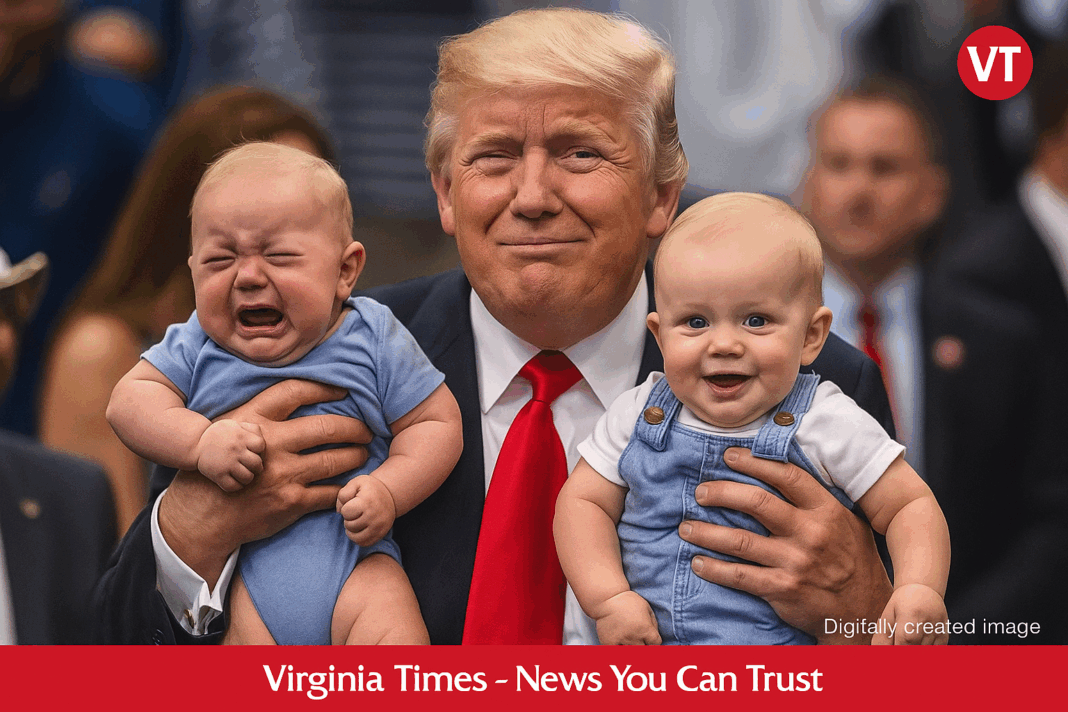The Trump administration is considering a one-time $5,000 cash bonus for new mothers to reverse the country’s declining birth rate — a proposal drawing both praise and skepticism across political and economic circles.
A Push to Raise the Birth Rate
In 2023, the U.S. saw fewer than 3.6 million births — the lowest annual count since 1979. Demographers warn this trend could create long-term challenges, including workforce shortages and slower economic growth.
President Donald Trump, now serving his second term, has expressed interest in policies that promote family expansion. When asked about the baby bonus, he responded that it “sounds like a good idea,” and when a reporter called him the “Fertilization President,” Trump laughed and said, “If that’s what they want to say, I’m okay with it” (NBC News).
Inspired by International Models
The concept draws inspiration from pronatalist policies in countries like Russia, Hungary, and Poland, where governments offer direct payments to encourage childbearing. Similarly, the U.S. plan under discussion would provide a $5,000 payment to mothers after childbirth to help cover immediate expenses such as hospital bills, baby supplies, and early childcare.
But according to Vox, the baby bonus is only part of a broader set of ideas being discussed inside the Trump administration. Officials are reportedly considering policies like:
- Expanding the Child Tax Credit
- Reserving a portion of Fulbright scholarships for married applicants or parents
- Exploring a national pronatalist strategy
Is $5,000 Enough?
While many conservatives have applauded the proposal as pro-family, economists and family advocates caution that a one-time payment may not significantly change reproductive decisions. The average cost of raising a child in the U.S. exceeds $300,000, and without structural reforms, many prospective parents remain hesitant.
As reported by NBC News, policy analysts argue that more impactful solutions include:
- Paid parental leave
- Affordable childcare
- Healthcare support
- Flexible work environments
A poll cited by Vox found that just 4% of undecided Americans would be influenced by a $5,000 incentive, while over 30% said they’d require more than $25,000 to consider having a child.
Political and Public Reaction
The initiative has sparked sharp debate in Congress. Some Republicans are framing it as a revival of traditional family values, while Democrats argue it’s a band-aid solution that falls short of comprehensive reform.
“It’s a flashy headline,” said one progressive lawmaker, “but it doesn’t help struggling families with the cost of parenting over the long term” (NBC News).
Despite the criticism, public interest in the proposal remains high, and the administration has signaled it is actively studying the policy’s feasibility.
What Happens Next?
No final decision has been made, and the proposal would require Congressional approval. Still, the Trump administration appears committed to pursuing policies that encourage Americans to have more children — even if the financial details need refinement.
For now, the baby bonus has reignited a national conversation about what it really takes to make America a family-friendly society — and whether one-time incentives are enough to address decades of demographic decline.
A global media for the latest news, entertainment, music fashion, and more.














